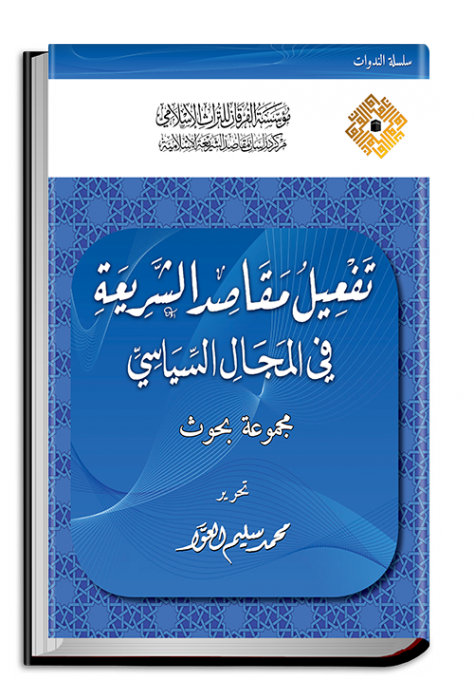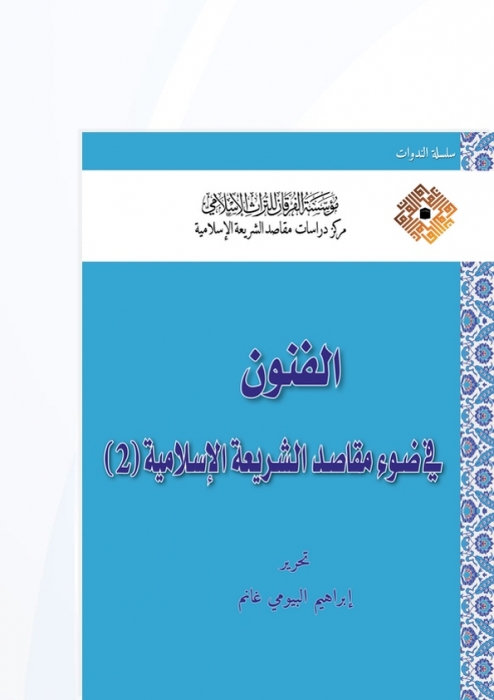This publication comprises thirteen studies presented at the symposium titled “Activating the Sharīʿah Objectives (maqāṣid) in the Political Sphere”, which was organised in 2013 by the Centre for the Study of the Philosophy of Islamic Law, in cooperation with the Tunisian Ministry of Religious Affairs and the Tunisia branch of the International Union of Muslim Scholars. These insightful scholarly works addressed topics of theoretical and applied nature, while applying maqāṣid-based approaches related to the symposium’s subject matter. Moreover, they responded to topical real-world issues, and discussed matters of debate raised in the current Arab political context. Some of the symposium studies examined the dilemma of a civil state with Islamic orientation; the gradual approach to application of Sharīʿah; and the necessity to found and activate a special maqāṣid-based political science, along with determining priorities precisely in the context of the numerous demands imposed by reality. Several studies developed a maqāsid basis on the issue of “pluralism and transfer of power”, while others conceptualised the relation between parliaments and consensus (ijmāʿ). Some studies reflected on the legality of political participation in Sharīʿah, the right to organise politically and hold elections. These works asserted that membership of parties and associations is one of the best and most certain ways of achieving the purpose (maqṣad) of liberty, and fulfilling the Islamic civilisation’s renaissance. Other studies performed a thorough examination of the theoretical and practical importance of the “jurisprudence of governance in Sharīʿah” (fiqh al-siyāsah al-sharīʿiyah) from the perspective of Sharīʿah texts and maqāsid. This included establishing the foundation of this branch of jurisprudence, and clarifying the role of maqāṣid as pivotal reference, while addressing the thorny issue of “separation between religion, state and society”, and applying the jurisprudence of governance to “elections”. Some studies explored civil society and its purposes, the debate over its inclusion or exclusion, and the obstacles that restrict its effectiveness in performing the function of political reform and democratic change in Arab countries. These studies provided theoretical arguments regarding the policies and purposes of civil society in different systems. Some studies explored the maqāṣid in labour laws and worker rights, and in deepening self-regulation between transacting parties. Some studies presented human rights reports in light of maqāṣid theory, by comparing selected articles of the “1948 Universal Declaration of Human Rights”, and the «1957 Abolition of Forced Labour Convention». Other studies took a practical, applied approach to maqāṣid in contemporary state constitutions, taking Egypt as a case study. The symposium annexes included: the role of a renowned historical institution in the Islamic world in the new political life and democratic change, after the Revolution on 25 January 2011; Al-Azhar was examined in light of documents it issued, among them: the “Al-Azhar document against violence”, and the “Joint document by Al-Azhar and intellectuals on the system of fundamental rights”. These annexes also included commentary addressed to the Constituent Assembly tasked with writing the 2012 Egyptian Constitution, with guidance on disambiguating the "principles of Islamic Law". Indeed, a cause for optimism and satisfaction is that the scholars, who contributed to this book—given the diversity of their research and juristic approaches, in addressing their topic individually, have left an indelible mark. This represents evidence of their qualification to perform juristic effort (ijtihād), or come quite close to that.
 Shared Knowledge
Shared Knowledge


 Studies in the Philosophy of Islamic Law: Theory and Applications (Research articles)
Studies in the Philosophy of Islamic Law: Theory and Applications (Research articles) Arts in the Light of Maqāṣid Al-Sharīʿah (3)
Arts in the Light of Maqāṣid Al-Sharīʿah (3) Arts in the Light of Maqasid Al-Shari'ah (2)
Arts in the Light of Maqasid Al-Shari'ah (2)